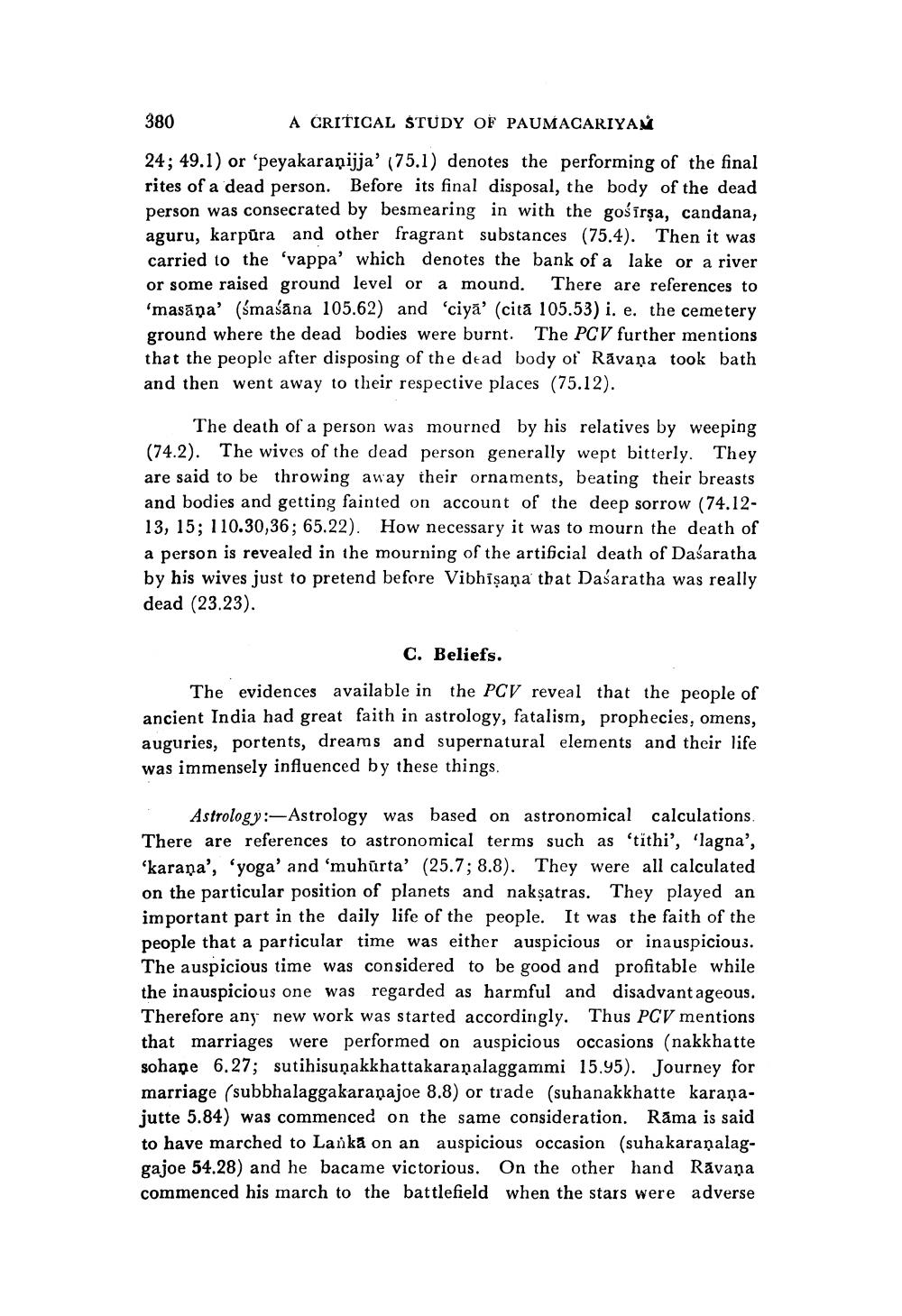________________
380
A CRITICAL STUDY OF PAUMACARIYAM
24; 49.1) or 'peyakaranijja' (75.1) denotes the performing of the final rites of a dead person. Before its final disposal, the body of the dead person was consecrated by besmearing in with the gośīrsa, candana, aguru, karpūra and other fragrant substances (75.4). Then it was carried to the 'vappa' which denotes the bank of a lake or a river or some raised ground level or a mound. There are references to 'masāna' (śmaśāna 105.62) and 'ciyā' (citā 105.53) i. e. the cemetery ground where the dead bodies were burnt. The PCV further mentions that the people after disposing of the dead body of Rāvaņa took bath and then went away to their respective places (75.12).
The death of a person was mourned by his relatives by weeping (74.2). The wives of the dead person generally wept bitterly. They are said to be throwing away their ornaments, beating their breasts and bodies and getting fainted on account of the deep sorrow (74.1213, 15; 110.30,36; 65.22). How necessary it was to mourn the death of a person is revealed in the mourning of the artificial death of Dasaratha by his wives just to pretend before Vibhişaņa that Dasaratha was really dead (23.23).
C. Beliefs.
The evidences available in the PCV reveal that the people of ancient India had great faith in astrology, fatalism, prophecies, omens, auguries, portents, dreams and supernatural elements and their life was immensely influenced by these things.
Astrology :- Astrology was based on astronomical calculations. There are references to astronomical terms such as 'tïthi', 'lagna', "karana', 'yoga' and 'muhurta' (25.7; 8.8). They were all calculated on the particular position of planets and naksatras. They played an important part in the daily life of the people. It was the faith of the people that a particular time was either auspicious or inauspicious. The auspicious time was considered to be good and profitable while the inauspicious one was regarded as harmful and disadvantageous. Therefore any new work was started accordingly. Thus PCV mentions that marriages were performed on auspicious occasions (nakkhatte sohape 6.27; sutihisuņakkhattakaraṇalaggammi 15.95). Journey for marriage (subbhalaggakaraṇajoe 8.8) or trade (suhanakkhatte karanajutte 5.84) was commenced on the same consideration. Ráma is said to have marched to Lanka on an auspicious occasion (suhakaranalaggajoe 54.28) and he bacame victorious. On the other hand Ravana commenced his march to the battlefield when the stars were adverse




